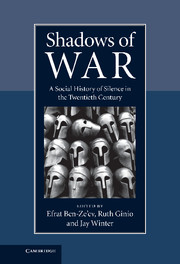Book contents
- Frontmatter
- Contents
- Notes on contributors
- Preface and acknowledgments
- Part I Framing the problem: Multi-disciplinary approaches
- Part II Europe
- 3 Breaking the silence? Memory and oblivion since the Spanish Civil War
- 4 In the ashes of disgrace: Guilt versus shame revisited
- 5 On silence, madness, and lassitude: Negotiating the past in post-war West Germany
- Part III Africa
- Part IV The Middle East
- Index
- References
5 - On silence, madness, and lassitude: Negotiating the past in post-war West Germany
Published online by Cambridge University Press: 04 May 2010
- Frontmatter
- Contents
- Notes on contributors
- Preface and acknowledgments
- Part I Framing the problem: Multi-disciplinary approaches
- Part II Europe
- 3 Breaking the silence? Memory and oblivion since the Spanish Civil War
- 4 In the ashes of disgrace: Guilt versus shame revisited
- 5 On silence, madness, and lassitude: Negotiating the past in post-war West Germany
- Part III Africa
- Part IV The Middle East
- Index
- References
Summary
When the English author, Stephen Spender, went on his journey to Germany in the summer of 1945 by order of the Allied Control Commission, he gained a variety of impressions, which, soon after his return, he published in the form of a travelogue. He had spent several months in the Rhineland, mostly in bigger cities, the devastation of which made him shudder. In his report, Spender also spoke repeatedly about the Germans and their mental state, which was something he tried to decipher. During one of his forays along the Rhine River, for instance, he met six men who, apparently in a gloomy mood, were staring at the river in an apathetic manner. Spender thought that they were former members of the German army. “The German soldiers now have the soulless ground-down expression as in carved-wood faces of Slav peasants,” he explained, before realizing a moment later that he had not come across German POWs, but former Polish slave labourers. His conversation with these men was brief, whereupon they relapsed into the “apathetic silence” in which Spender had found them. He regarded this “apathy” as a mere “surface expression.” “Behind it, there is something much more menacing,” he explained, “something which has happened and left its impression, the fires which burned the cities of Europe still smouldering in the minds of men. This is a state of mind which glows beyond despair.
- Type
- Chapter
- Information
- Shadows of WarA Social History of Silence in the Twentieth Century, pp. 91 - 112Publisher: Cambridge University PressPrint publication year: 2010
References
- 2
- Cited by

